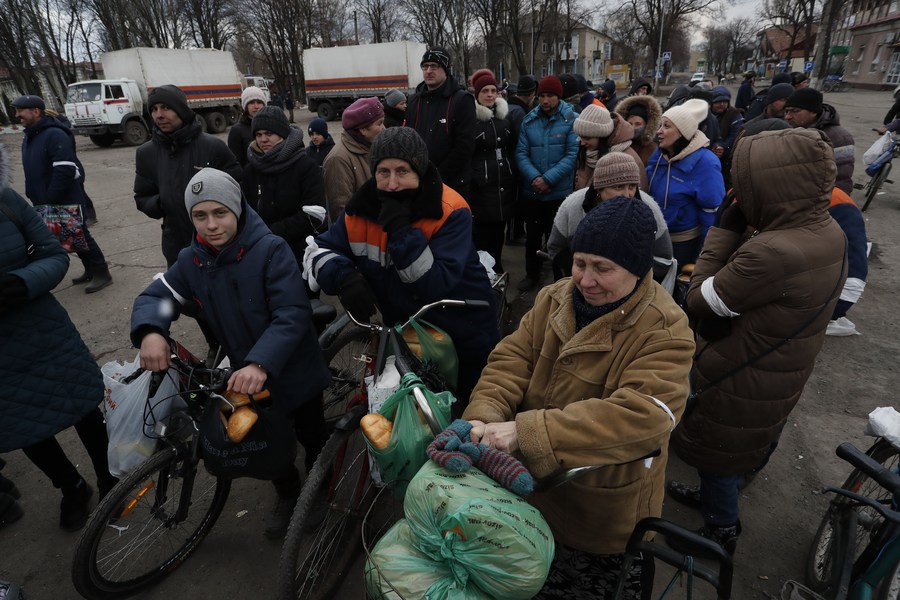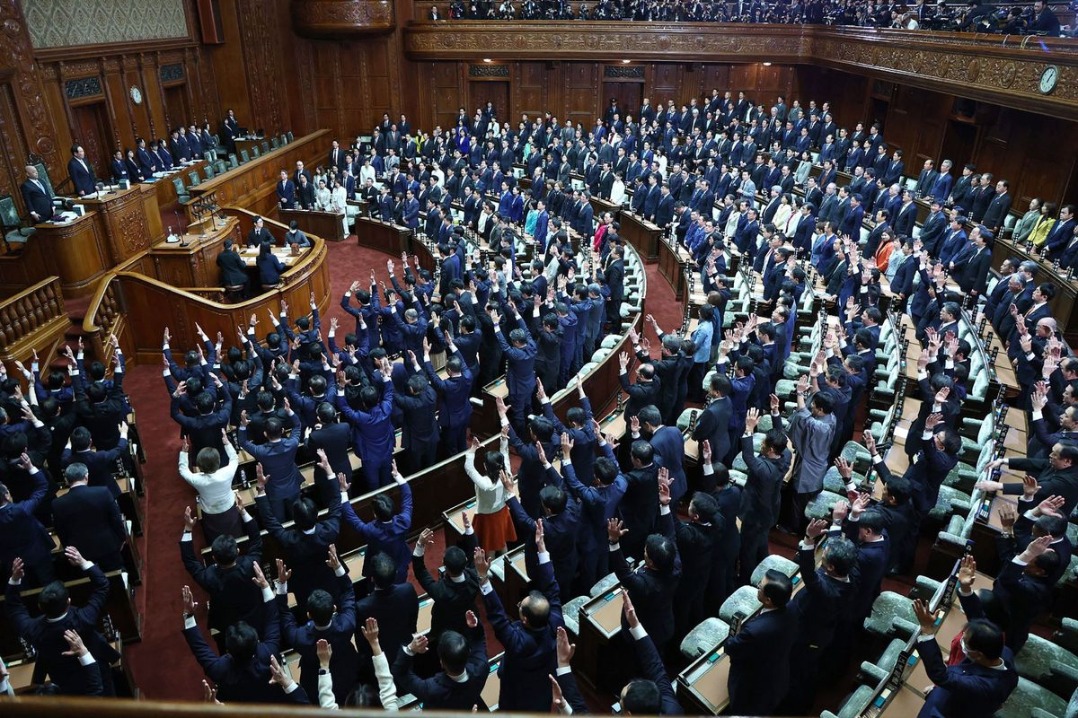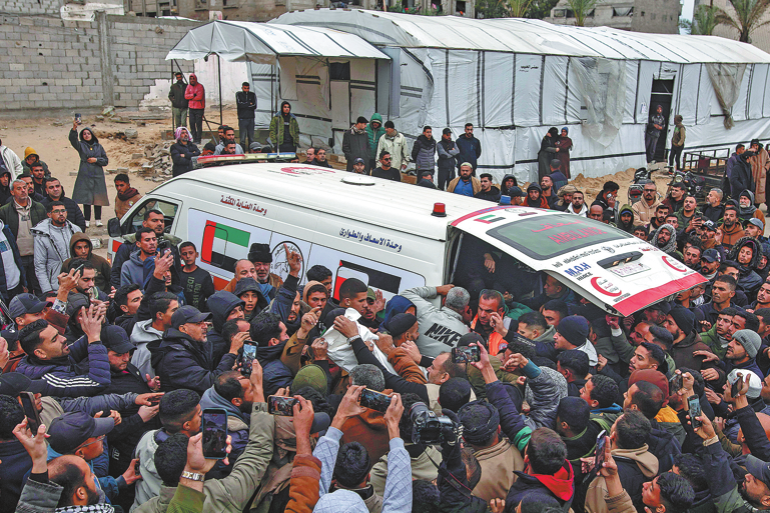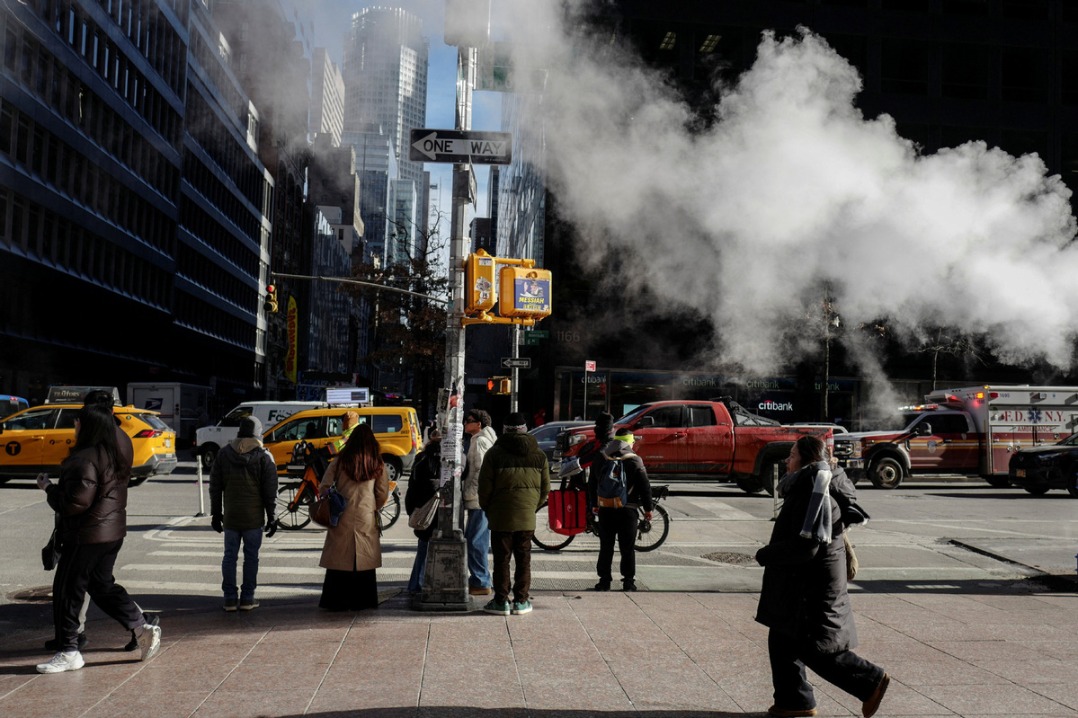Urgency of EU strategic autonomy may increase


The conflict between Russia and Ukraine broke out suddenly and has been escalating, making Europe once again a battlefield for military confrontation. What does this mean for European countries? Will the regional turmoil make Europe more dependent on the United States-led NATO, or will it further seek "strategic autonomy"?
Russia's "special military operation" in Ukraine, launched on Feb 24, may seem sudden but is not. The five rounds of large-scale eastward expansion of NATO have made Russia feel that its strategic space has been severely squeezed, and Ukraine's continuous pursuit of joining NATO has further exacerbated regional tensions.
At the end of 2021, Russia drew a red line for NATO with three requirements. First, NATO is not to further expand eastward and, especially, Ukraine is not to join NATO. Second, NATO is not to deploy offensive military weapons and equipment to Russia's neighboring countries. Finally, NATO's military deployment in Europe should be restored to the status stipulated by the 1997 NATO-Russia Founding Act.
Russia believes that the West has been ignoring its demands, and it finally decided to recognize the "two republics" ("the Luhansk People's Republic" and "the Donetsk People's Republic") as independent and sovereign states and launch the "special military operation".
The Russia-Ukraine conflict will cause a serious setback for relations between Russia and Western countries, including European countries. Bilateral relations are worse than at any time (including the 2014 Crimean crisis) since the end of the Cold War.
On the one hand, the refugee crisis caused by the conflict is unavoidable. The geographically adjacent European countries will bear the brunt, facing the worst refugee crisis in the more than 70 years since the end of World War II.
On the other hand, the Russia-Ukraine conflict will cause severe economic and energy shocks. Russia has been a major energy supplier for European countries. Amid the crisis, however, Russia's Nord Stream 2 natural gas pipeline to Germany has been halted and the price of oil and gas in Europe has been surging rapidly, leaving European countries with the risk of an energy crunch or even interruption. Sanctions will surely hit Russia hard, but they will also cause costs and losses for Europe.
Will the Russia-Ukraine conflict make European countries more dependent on the United States, or accelerate the goal of strategic autonomy? Alongside deeper European economic integration, the European Union's strengths mainly lie in economic, trade and political soft power, but the EU lacks hard power in military security. So far, European countries have not been able to reach a real consensus on common security and defense issues, let alone to form an effective security mechanism. The Russia-Ukraine conflict has further underlined EU member countries' divergences and differences in seeking strategic autonomy.
The Central and Eastern European countries that are geographically close to Russia, such as the three Baltic countries (Estonia, Latvia and Lithuania) and Poland, see Russia as a major security threat and hope to protect their own security through NATO. Therefore, these countries are, to a certain extent, opposed to European strategic autonomy.
On the other side of the equation, the Ukraine crisis has posed a severe challenge for countries that support European strategic autonomy, such as France and Germany. Since French President Emmanuel Macron was sworn in to office in 2017, he has been vigorously promoting European strategic autonomy. Another major European power, Germany hopes to increase the overall strength of the EU through cooperation with France to reduce security dependence on other countries.
Before the outbreak of the Ukraine crisis, France and Germany had not played an active role in responding to Russia's demands and security concerns.
The EU's previous behavior is widely seen as too weak when it comes to its own security interests, economic development and the relations with its most important neighbor, Russia. Therefore, I believe that major European powers such as France will not give up strategic autonomy because of this conflict, but rather will further realize the urgency of strategic autonomy. However, after all, this is a long-term goal that cannot be achieved in one fell swoop. Therefore, these countries will maintain their existing military alliance with the United States while continuing to pursue the goal of strategic autonomy.
The Russia-Ukraine conflict will have a profound and long-term impact on the international landscape and major-country relationships. After the end of World War II, the international landscape of US-Soviet Union confrontation was formed, leaving the world in a 40-year Cold War period. The world then entered a post-Cold War period of more than 30 years, with Russia and the West still keeping the exchange channel open.
As the US continues to rally its allies to impose large-scale sanctions on Russia and beef up military assistance to Ukraine, the Russia-Ukraine conflict has become more and more complicated. I believe that this crisis will trigger a new round of major adjustments in major-country relationships, and the relationship between the West and Russia will enter a new period of all-out confrontation, bringing profound changes to the international landscape.
In face of the fast-changing situation, Europe should commit itself to seeking peaceful approaches and diplomatic solutions to the crisis in Ukraine. Behind the Russia-Ukraine conflict are complicated historical issues and national interests. All countries concerned should mull over their stance and expression of the stance rationally and cautiously after taking into consideration all factors concerned. We should push for a diplomatic solution instead of further escalating the situation.
The author is general director of the Institute of European Studies of the Chinese Academy of Social Sciences.
































